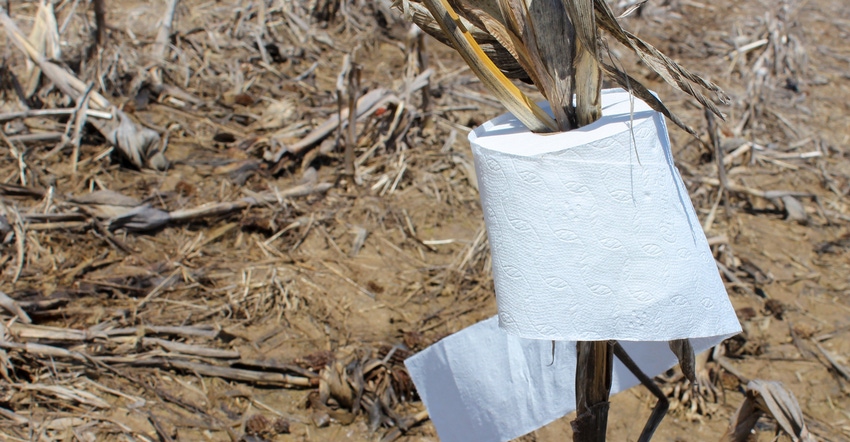
If you’ve ever taken a course on soil fertility or animal nutrition, chances are the instructor asked the classic trick question: “What nutrient is most important?” You could argue for a variety of nutrients based on the effect they have on plant or animal performance. But if you want the extra credit points, you’d better answer, “The one that is lacking.”
In recent months, a similar concept has been playing out in the economy and society as we grapple with the COVID-19 pandemic. As news came out about stay-at-home orders, people rushed to stores to stock up before restrictions were enacted.
Ordinarily, no one worries about which item on a long shopping list is most important because everything on the list is waiting on a shelf. But when shelves started emptying, people started thinking they couldn’t live without toilet paper. I suppose toilet paper seems mighty important when you think you’ll be sitting in the bathroom without any.
Related: Complete coronavirus coverage
It wasn’t long before the anticipated demands on the health care system made doctors and nurses and respiratory therapists seem particularly important. That was undoubtedly true in hard-hit communities; yet in other communities, the cancellation of elective surgeries and a reduction in traffic accidents left hospital rooms empty, so health care workers were sent home for lack of patients.
A spectrum of essential workers
Eventually, the news media and the public started realizing other workers were important, too: grocery store stockers, truck drivers and the people who keep the internet turned on. Then agriculture drew attention as well. News reports showed dairy farmers dumping milk, while stores were limiting milk purchases.
Supply-chain problems started surfacing in other areas of agriculture, too, making it obvious it takes a whole string of essential workers to process our pigs into pork chops, package them and get them to grocery stores. For some farmers, the missing ingredient was restaurant customers who weren’t eating their oysters, microgreens and artisanal cheeses. Other farmers have been feeling the lack of energy demand as drivers stay home and buy less fuel, contributing to closures of ethanol plants that would otherwise be supporting corn prices.
Balance easily upset
When something is lacking, an entire system can be thrown out of balance, whether it’s a soil fertility program, a livestock ration or a food system. Sometimes making substitutions or adding more of another component can help compensate for a shortage, but nobody really wants to make do with cornhusks for toilet paper over the long run.
Early on, I noticed some social media “agvocates” making their usual comments about how hard farmers work, and how important the farmer’s role is in society. Those posts seem to have tapered off, and I’m glad to see that.
Of course, farmers still need to advocate for their industry, but now is not the time for humble-brag attention-seeking. Lots of people are working harder than ever now, and others can’t work no matter how much they want to. Right now, farmers are not the ones lacking, but we need the balance restored as much as anyone.
Keck writes from Raymond, Ohio.
Read more about:
Covid 19About the Author(s)
You May Also Like




